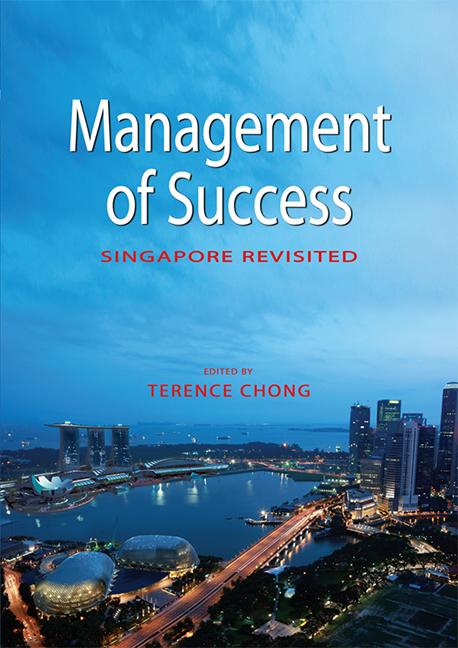Book contents
- Frontmatter
- Contents
- List of Tables and Figures
- Foreword
- Message
- Quote
- Preface
- The Contributors
- 1 Introduction: The Role of Success in Singapore's National Identity
- SECTION 1 SINGAPORE IN THE BIGGER PICTURE
- SECTION 2 LEADERSHIP, POLICY AND POLITICS
- SECTION 3 THE RESTRUCTURING OF THE ECONOMY
- SECTION 4 THE TRANSFORMATION OF SOCIETY
- 11 The Ageing Population
- 12 Managing Labour Flows: Foreign Talent, Foreign Workers and Domestic Help
- 13 Social Mobility in Singapore
- 14 Singapore's Print Media Policy: A National Success?
- 15 Control-shift: The Internet and Political Change in Singapore
- 16 The Transformation of Meritocracy
- 17 Education in Singapore: Sorting Them Out?
- 18 Religious Diversity in Singapore
- SECTION 5 THE LAW
- SECTION 6 MODIFICATION OF THE ENVIRONMENT
- SECTION 7 COMMUNITY AND NATIONAL SECURITY
- SECTION 8 LIFE IN SINGAPORE
- Index
17 - Education in Singapore: Sorting Them Out?
from SECTION 4 - THE TRANSFORMATION OF SOCIETY
Published online by Cambridge University Press: 21 October 2015
- Frontmatter
- Contents
- List of Tables and Figures
- Foreword
- Message
- Quote
- Preface
- The Contributors
- 1 Introduction: The Role of Success in Singapore's National Identity
- SECTION 1 SINGAPORE IN THE BIGGER PICTURE
- SECTION 2 LEADERSHIP, POLICY AND POLITICS
- SECTION 3 THE RESTRUCTURING OF THE ECONOMY
- SECTION 4 THE TRANSFORMATION OF SOCIETY
- 11 The Ageing Population
- 12 Managing Labour Flows: Foreign Talent, Foreign Workers and Domestic Help
- 13 Social Mobility in Singapore
- 14 Singapore's Print Media Policy: A National Success?
- 15 Control-shift: The Internet and Political Change in Singapore
- 16 The Transformation of Meritocracy
- 17 Education in Singapore: Sorting Them Out?
- 18 Religious Diversity in Singapore
- SECTION 5 THE LAW
- SECTION 6 MODIFICATION OF THE ENVIRONMENT
- SECTION 7 COMMUNITY AND NATIONAL SECURITY
- SECTION 8 LIFE IN SINGAPORE
- Index
Summary
THE DECENTRALIZATION OF EDUCATION FROM THE 1980s
This chapter focuses on macro-policy trends and initiatives in the Singapore education system since the publication of the 1989 volume of Management of Success. It highlights the growing marketization of the education system, the continuing preoccupation with fostering social cohesion through the schools, and the all-encompassing Thinking Schools, Learning Nation initiative that aims at promoting changes in teaching and learning in schools in support of national economic competitiveness within the global economy. The chapter also points out ongoing policy tensions, challenges and dilemmas. Policy rhetoric that promotes social cohesion appears at odds with a well-entrenched view of education as a tool for sorting the elite out from the rest at an early age, as well as with policies encouraging aggressive inter-school competition. At the same time, rhetoric about encouraging choice and diversity coexists with powerful centralizing and homogenizing policy mechanisms.
In 1982 the then Director of Schools John Yip announced that the Ministry of Education (MOE) wanted to decentralize educational management from the ministry's headquarters to the schools. He listed several benefits of decentralization. First, it would encourage greater efficiency. Principals and teachers would be stimulated to become innovative and creative. Students would be the ultimate beneficiaries of principals’ strong educational leadership. Secondly, decisions on how to meet students’ diverse needs were best made by individual schools rather than by the MOE. Yip noted, however, that the MOE would continue to maintain sufficient centralized control and supervision in order to ensure uniform standards. Furthermore, principals would continue to be accountable to the MOE through regular inspections.
A major boost to the idea of freeing schools from centralized control was given by then Deputy Prime Minister Goh Chok Tong in 1985. He spoke of the need to allow more autonomy within schools, and of giving the right to appoint staff, devise school curricula, and choose textbooks, while conforming to national education policies such as bilingualism and common examinations. Goh asserted that prestigious schools had lost some of their special character through centralized control. Goh's sentiment was echoed the following year by then Prime Minister Lee Kuan Yew who felt that government domination of educational provision meant a lack of competition and diversity.
- Type
- Chapter
- Information
- Management of SuccessSingapore Revisited, pp. 288 - 308Publisher: ISEAS–Yusof Ishak InstitutePrint publication year: 2010

